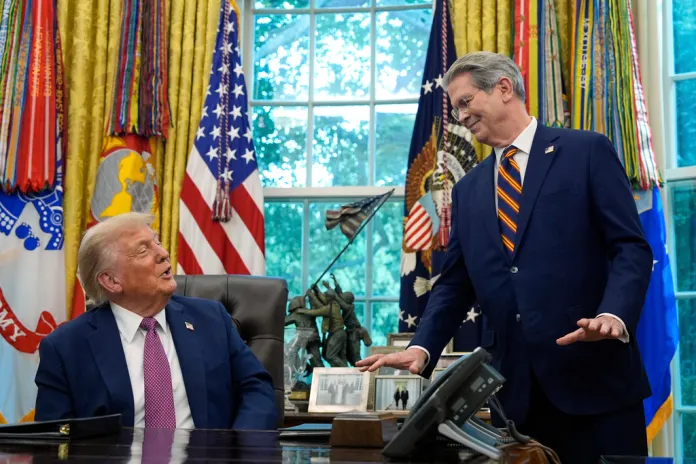Treasury Secretary Scott Bessent said the Trump administration would have to offer rebates to importers affected by President Donald Trump’s “reciprocal” and fentanyl-related tariffs if the Supreme Court orders them to, even though it “would be terrible for the Treasury.”
After a federal appeals court ruled in late August that Trump unlawfully used the International Emergency Economic Powers Act to enact his “Liberation Day” and fentanyl tariffs, Trump swiftly appealed the decision to the Supreme Court last week.
Bessent told NBC’s Kristen Welker on Sunday that he is “confident” the Supreme Court will rule in favor of the Trump administration, but if it upholds the appellate court ruling, the administration might have to send rebate checks to companies affected by Trump’s tariffs.
“We would have to give a refund on about half the tariffs, which would be terrible for the Treasury,” Bessent told Welker. “If the court says it, we’d have to do it.”

Holland & Knight LLP partner Patrick Childress, who specializes in trade law, told the Wall Street Journal that there are likely three mechanisms for these tariff repayments. Childress told the outlet that the Trump administration could either send proactive refunds to companies, send proactive refunds to only named companies in the court case, or create a system for companies to request tariff refunds.
Customs and Border Protection does have a system, administered through Automated Clearing House, to refund importers for overpayments on customs duties. The system deposits checks directly into the importer’s bank account, according to the CBP website.
Trump referenced duty refunds in a Friday executive order titled “Modifying the Scope of Reciprocal Tariffs and Establishing Procedures for Implementing Trade and Security Agreements.” Trump wrote that if any agreement between the United States and a foreign trading partner “requires a refund of duties collected, CBP shall provide the refund to the extent consistent with law.”
Trump used the International Emergency Economic Powers Act to target countries with reciprocal tariffs and tariffs aimed at stopping the flow of fentanyl into the U.S. Companies affected by these tariffs could be eligible for the refunds, pending the Supreme Court’s ruling.
Consumers would not be eligible for these tariff refunds, even though they may have had to pay higher prices due to the tariffs’ effects on importing companies.
“It’s the importer of record that is legally liable for paying tariffs and duties,” Barnes & Thornburg partner and trade lawyer Luis Arandia told the Associated Press. “They would be the only one to have standing to even get that money back.”
In August, Trump hit countries such as Canada, Syria, Switzerland, Iraq, and South Africa with higher tariff rates. The U.S. raised over $31 billion in tariff revenues in August, according to Bessent.
Bessent previously said he hoped to use the influx of tariff revenue to pay down the national debt. In an August CNBC Squawk Box interview, he said the administration could use tariff revenue to “bring down the deficit to GDP” and pay down the national debt.
CHINA’S EXPORTS TO US DROPPED 33% IN AUGUST
According to a CNN report, any tariff revenue goes into the Treasury Department’s general fund, called “America’s checkbook.”
The federal appeals court will allow the Trump administration to keep the tariffs in place until Oct. 14, allowing the administration time for its Supreme Court appeal.
